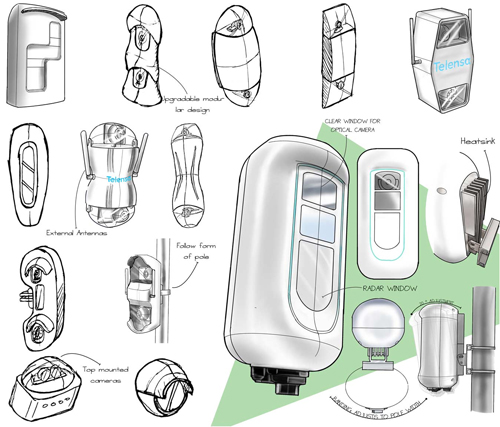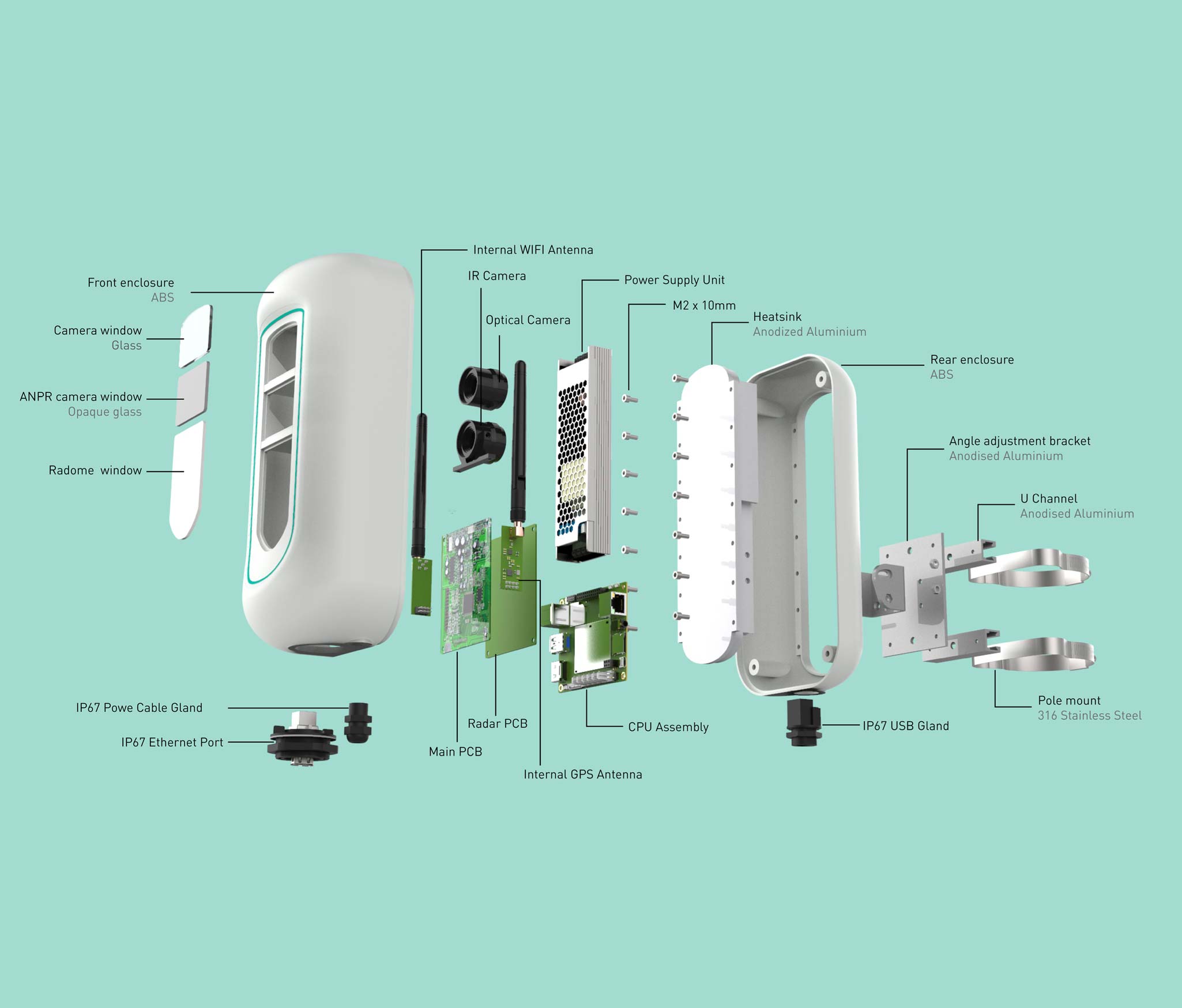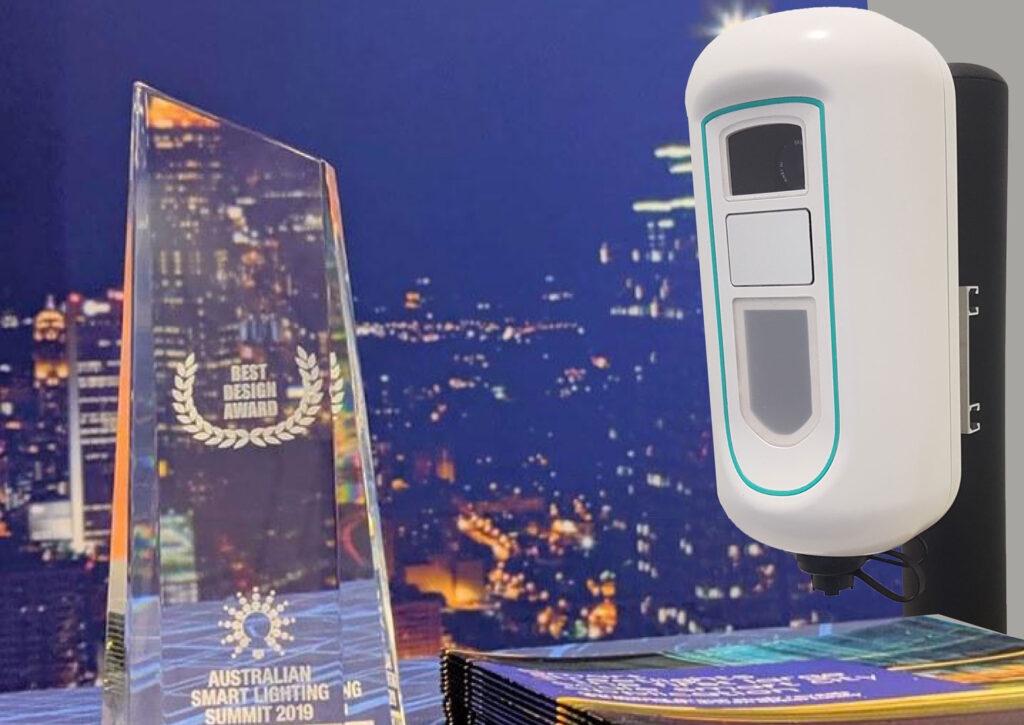Telensa, a leader in smart street lighting and smart city applications, asked us to develop the mechanical and aesthetic design for their multi-sensor pod as part of the Urban Data Project.
The pod uses a range of sensors and cameras to map how people use a city, the traffic mix on the roads, the hyper-local air quality, and noise levels. This data is incredibly valuable for designing better city infrastructure, delivering more efficient city services, and making everything more transparent to empower citizens.
Plextek had previously worked with Telensa to create their proof-of-principle prototype of the multi-sensor pods. The next stage was to rapidly realise a final product that could be exhibited at Mobile World Congress.
A key challenge was to take a bulky prototype with many complex components and create a device that was perceived by the public to be friendly and helpful rather than intrusive such as a speed camera or CCTV device. This was particularly difficult as the device included two cameras and also needed to provide shade from a luminaire above it.


We investigated the range of devices currently mounted on street furniture to assess their aesthetic, mounting methods, and stability. We found these devices are often perceived as intrusive as they stood out with bright colours and had intimidating aesthetics with sharp folded edges. This didn’t follow the form of the poles they were mounted to. Our solution needed to be adaptable for mounting to any street light design internationally and to adjust during installation to the incline of the road so that the cameras have a clear view.
From our research, we distilled a systematic design specification that considers all stakeholders involved with the product, including through distribution, installation, and manufacture. We created a broad range of different concepts and worked closely with the client to select and refine three concepts for which we developed initial prototypes for testing and review. We fully developed the mechanical design of the prioritised concept and creating fully working prototypes for Telensa to demonstrate to its customers.
The product successfully balanced social, technical, and spacial challenges to create a tangible solution which is both functionally and aesthetically pleasing.
Our work allowed Telensa to realise and demonstrate a future product, provided as part of the Urban Data Project to collect, protect, and apply data to improve city living. Showcased at tradeshows worldwide, our design made it to the Mobile World Congress and won the “Best Design” award at the Australian Smart Lighting Summit 2019.

| Cookie | Duration | Description |
|---|---|---|
| cookielawinfo-checkbox-analytics | 11 months | This cookie is set by GDPR Cookie Consent plugin. The cookie is used to store the user consent for the cookies in the category "Analytics". |
| cookielawinfo-checkbox-functional | 11 months | The cookie is set by GDPR cookie consent to record the user consent for the cookies in the category "Functional". |
| cookielawinfo-checkbox-necessary | 11 months | This cookie is set by GDPR Cookie Consent plugin. The cookies is used to store the user consent for the cookies in the category "Necessary". |
| cookielawinfo-checkbox-others | 11 months | This cookie is set by GDPR Cookie Consent plugin. The cookie is used to store the user consent for the cookies in the category "Other. |
| cookielawinfo-checkbox-performance | 11 months | This cookie is set by GDPR Cookie Consent plugin. The cookie is used to store the user consent for the cookies in the category "Performance". |
| viewed_cookie_policy | 11 months | The cookie is set by the GDPR Cookie Consent plugin and is used to store whether or not user has consented to the use of cookies. It does not store any personal data. |